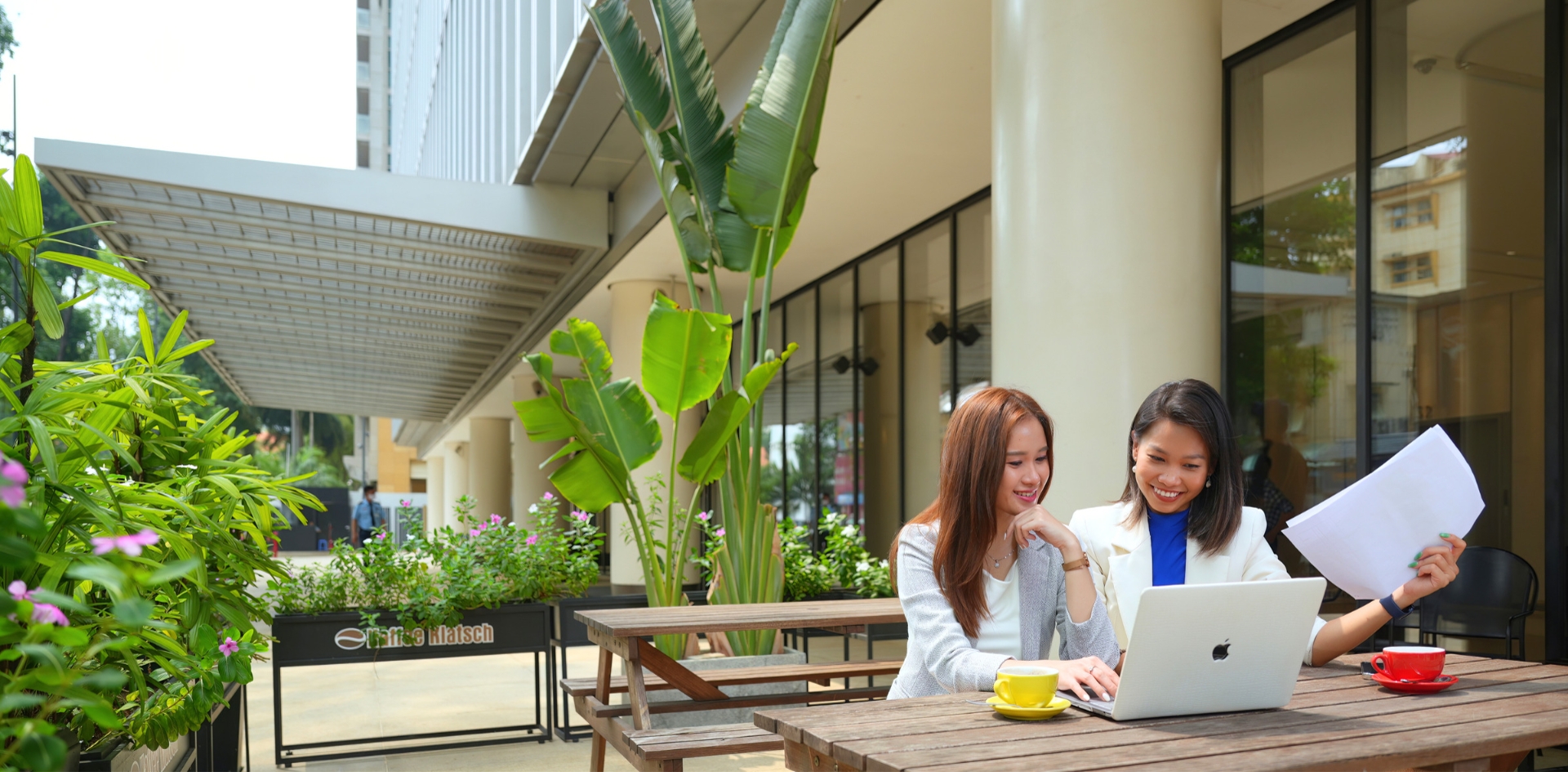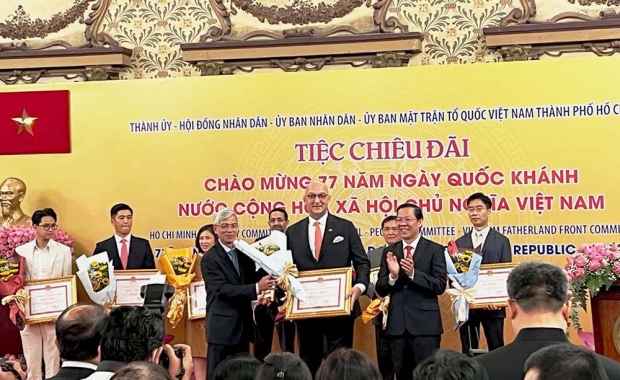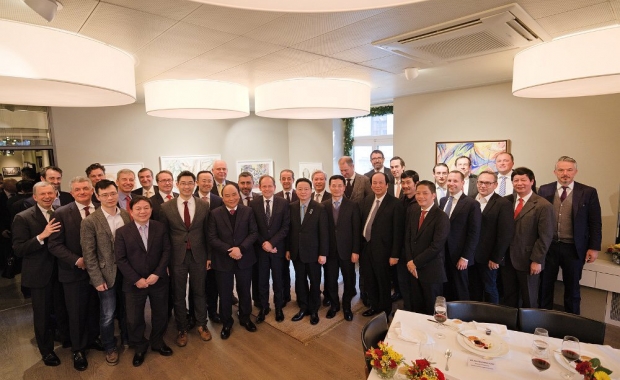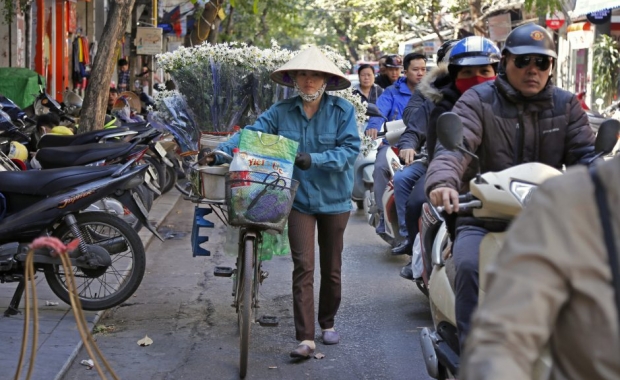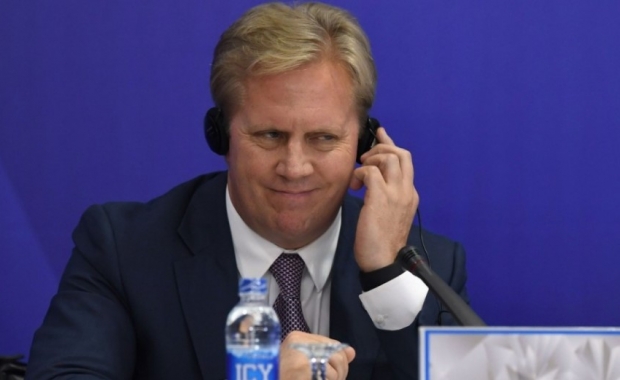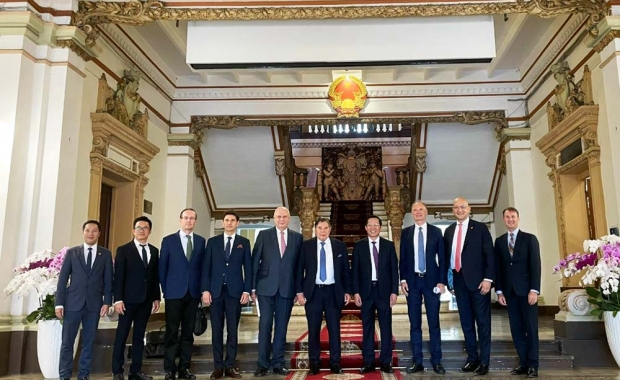KEYNOTE ADDRESS BY PRIME MINISTER OF VIET NAM H.E. NGUYEN XUAN PHUC AT THE VIET NAM BUSINESS SUMMIT
20/12/2022
On behalf of the Government of Viet Nam, I would like to convey warmest welcome to all distinguished delegates and guests attending the Viet Nam Business Summit on the occasion of the 2017 APEC Economic Leaders’ Week.
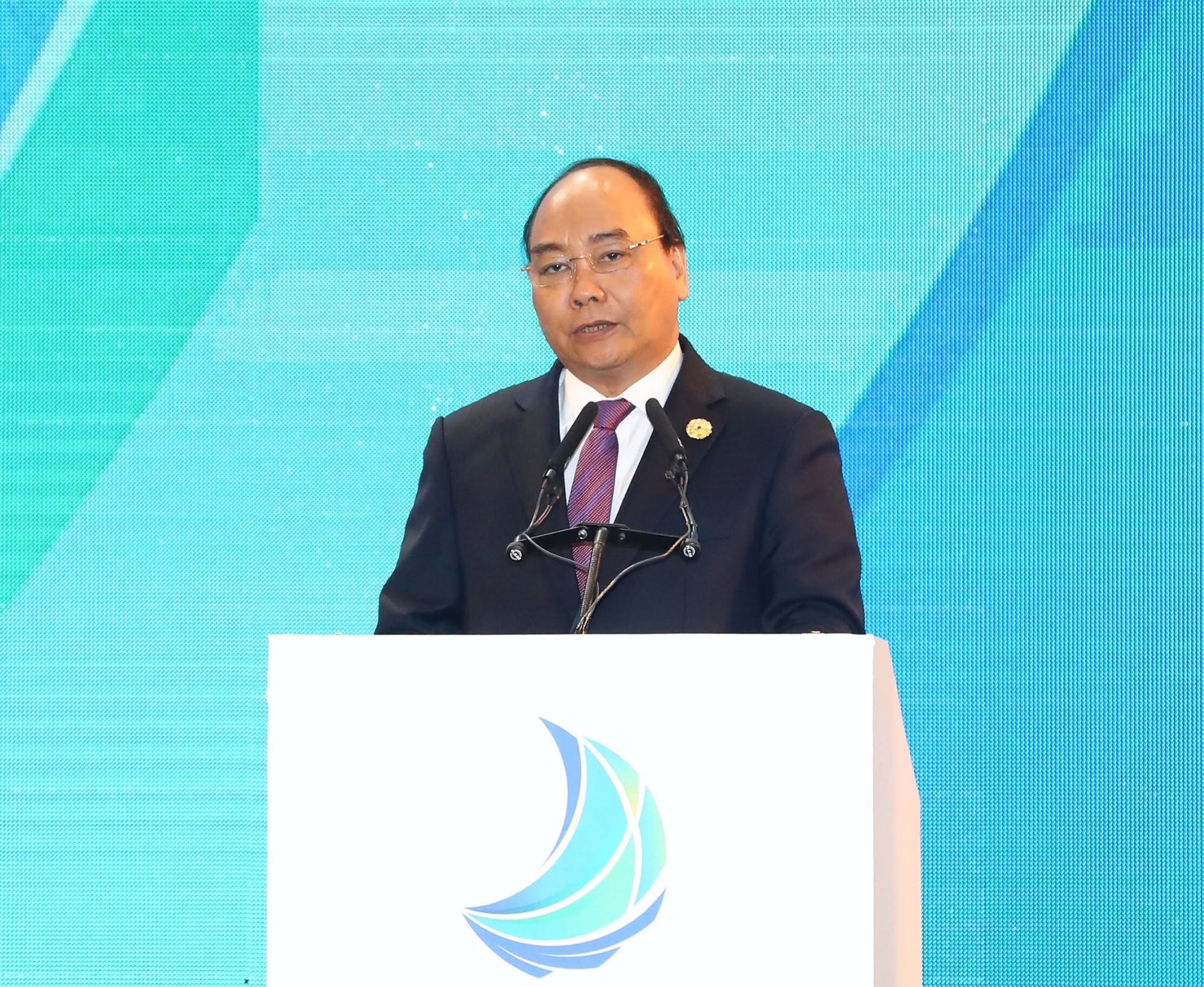
Madam Victoria Kwakwa, World Bank's Vice President for East Asia – Pacific, Mr. Philipp Rösler, Managing Director, World Economic Forum, Excellencies Ambassadors, Heads of diplomatic missions and international organizations in Viet Nam, Vietnamese and foreign experts, investors and businessmen,
On behalf of the Government of Viet Nam, I would like to convey warmest welcome to all distinguished delegates and guests attending the Viet Nam Business Summit on the occasion of the 2017 APEC Economic Leaders’ Week. May I extend my warmest greetings to all distinguished guests and delegations, representatives from organizations and enterprises, experts and investors Vietnamese and international alike.
Along with many APEC events and activities, the Viet Nam Business Summit is held in Da Nang and the ancient town of Hoi An - a vibrant trading post dating back to the early 17th century that received merchant fleets from Japan, China, India and Europe, laying the foundation for the development of trade relations for the past many hundred years. Today Viet Nam is still working hard to improve ourselves, to continue to be a potential and “reliable trade partner” to the international business communities and other countries. According to AmCham Singapore in September 2017, 56% of businesses surveyed has considered Viet Nam their best trade partner.
A report by the World Bank (WB) has pointed out that Viet Nam's economic transformation during the last 30 years is deeply significant. With the implementation of profound economic reforms that resulted in high GDP growth of average 7%/per year, the people's income has accordingly increased. In 2017, GDP growth is expected to reach 6.7% and we have set the target of 6.5 to 7% between 2016 and 2020. The average income per capita in Viet Nam has increased to $2,300 (or $6,800 on a purchasing power parity basis).
According to WB's “Report 2035” released in 2016, at present the middle class accounts for about 10% of Viet Nam's population, and is expected to increase to 50% by 2035. This has helped boost the demand of the economy and create many better jobs. Not only in the domestic market, Viet Nam has also step by step partaken in the value chains and production networks within the APEC region and the world. Rapidly growing income and the expanding middle class have changed in the consumption pattern of the economy, thus opening new opportunities for investors and move ahead with the new trend.
Viet Nam has shown its dynamism by its active international integration and strong support for global free trade. We have signed and joined 12 free trade agreements (FTAs) and are negotiating an additional four, including those with 18 partners who are APEC economies.
Ten years after our accession to WTO, Viet Nam's export-import turnover in 2017 has quadrupled to more than $400 billion, equivalent to 170% of GDP. We are making effort to substantially improve the business and investment environment. At present, there are more than 24,200 FDI projects hailing from 120 countries and territories in operation in Viet Nam, with a total registered capital exceeding $310 billion or 155% of GDP . Among them, FDI capital from APEC economies alone amounts to $250 billion, accounting for nearly 80% total FDI capital into Viet Nam over the past three decades. Many leading economic groups from APEC economies have selected Viet Nam to develop their regional production hubs for their global value chain.
According to prestigious international organizations as well as many entrepreneurs and investors, the competitiveness of and the business environment in Viet Nam have been substantially improved. The World Economic Forum (WEF)’s ranked Viet Nam's Global Competitive Index (GCI 2017-2018) 55th out of 137 countries, jumping 20 ranks over five years. Vietnam’s market size ranks 31st out of 137. According to the WB in a report published 31 October 2017, Viet Nam's 2018 Doing Business ranking is 68th out of 190 countries, an increase of 14 ranks compared to the previous year (ASEAN 5 Group). The World Intellectual Property Organization (WIPO) published their 2017 Global Innovation Index report in May 2017, which showed that Viet Nam advanced to rank 47h among 127 countries and economies, a 12-rank jump.
Ladies and Gentlemen,
Viet Nam today has a population of almost 95 million, a young population structure with more than 60% under 35 and an income rapidly rising, especially among the burgeoning middle class. On average between 2007 and 2016, the final consumption of the household sector accounts for 67.3% of GDP and increased by 16% per year. Domestic consumption has become an important driver for Vietnamese economic growth in addition to the export sector. This growing income has made Viet Nam ever more attractive to consumer goods producers, especially well-known foreign brands. Apple, Samsung, LG and Sony smartphones are quite popular in Viet Nam, while such brands as China's Huawei and Oppo, with comparable design and functions, are also selected by the youths.
Viet Nam has 52 million internet users, accounting for 54% of the population., ranking fifth in the Asia-Pacific in terms of internet access after China, India, Japan and Indonesia. With 55% of its people having smartphones, it is projected that by 2020, Viet Nam will be among the leading countries in the region in terms of mobile users. This is both an important foundation and a major opportunity for potential investors to market their products and services to the vast potential customer base in Viet Nam.
Ladies and Gentlemen,
The results that Viet Nam has achieved until now is an important encouragement for us to remain confident and steadfast to grow stronger in the years to come. We are determined to build an action-oriented, enabling government in service of the people and businesses. We will accelerate international integration. We will continue to pay due attention to macro-economic stability, institutional and legal policy reform, sustainable development, job creation and income raising for the people
In the coming years, we will focus on the following solutions:
First, we will continue to improve the legal, institutional and policy frameworks, promote the rule of law, encourage private sector’s development, strengthen state governance capacity, maintain macroeconomic stability towards sustainable growth, ensure social progress, and help the low-income group catch up with middle-income and better-off groups. The entrepreneurial spirit to enrich oneself is key to keep the dynamism of the active circle between the growth of the middle class and economic growth.
We will focus on investing into infrastructure connecting the urban areas to the countryside, mountainous regions and remote areas. Viet Nam pays great attention to the development of the healthcare and education system, reduce the income gap while improving the social welfare network to protect disadvantaged and vulnerable groups from negative shocks.
Second, foster the start-up and innovation economy through the commitment to assist and enable the incubation and realization of start-up ideas. Viet Nam pledges to protect innovative ideas and new inventions in the start-up economy and will ensure intellectual property rights within the framework of the Intellectual Property Law as well as within the FTAs that Viet Nam is party to. The dynamism of the economy, an open internet policy and the enabling conditions for doing business are creating major opportunities for start-up entrepreneurs in Viet Nam. We wish to call on investors to participate, and hope there will be more start-ups and venture funds operating in Viet Nam to further encourage the strong start-up spirit in our country.
Third, carry out tax reforms towards greater competitiveness for the economy, with an aim for the OECD's high standards for transparency, fairness and efficiency. Presently Viet Nam's corporate income tax is at 20% and will be reduced to 15 to 17% according to the upcoming tax reform timetable support the business community. Apart from the competitive tax rate, Viet Nam also puts in place many tax incentives for investors in priority areas such as high-tech industries, supporting industries, high-tech agri-business and labour-intensive industries.
Ladies and Gentlemen,
In the vision for the next decade, Viet Nam aims to become a dynamic, innovation-based economy. The Viet Nam Business Summit today has 6 thematic sessions on agriculture, finance, education and health, infrastructure, special economic zones, start-ups, and innovation. These will generate multiple opportunities for cooperation and investment in Viet Nam, and we shall work together towards the theme of APEC 2017 - “Creating new dynamism, fostering a shared future” for the Asia-Pacific, for peace, stability, integration, dynamic development and prosperity
May the 2017 Viet Nam Business Summit be a great success!
Thank you.

